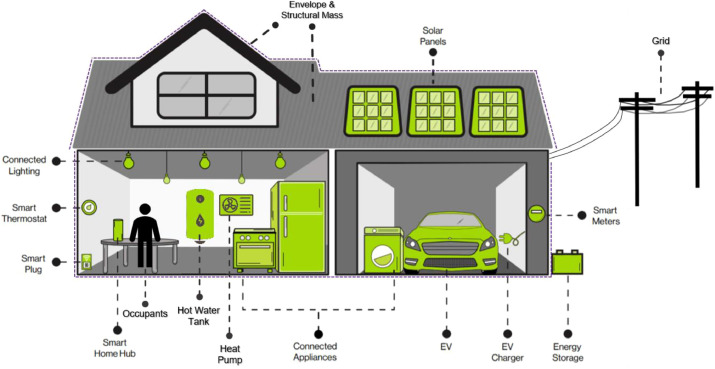In today’s world, where energy demands are escalating and climate concerns are pressing, the need for residential energy security has never been more crucial. As homeowners seek sustainable and reliable solutions, residential battery storage emerges as a game-changer. In this comprehensive guide, we delve into the realm of residential energy security, exploring the significance of home batteries, their benefits, and how they empower homeowners to take control of their energy consumption.
Understanding Residential Battery Storage
Residential battery storage, often referred to as home batteries, enables homeowners to store excess electricity generated from renewable energy sources like solar panels. Instead of relying solely on the grid, these batteries allow users to harness and store clean energy for later use, even during grid outages or peak demand periods.
Benefits of Home Batteries
1. Energy Independence:
Home batteries liberate homeowners from their dependence on traditional energy sources by providing a reliable backup power source. During grid outages or emergencies, residents can continue to power their essential appliances and maintain comfort and security within their homes.
2. Cost Savings:
By storing excess energy generated during off-peak hours or sunny days, homeowners can reduce their reliance on expensive grid electricity during peak hours. This can lead to significant cost savings on energy bills over time, making home batteries a wise investment for the future.

3. Environmental Impact:
Utilizing home batteries alongside renewable energy sources like solar panels reduces reliance on fossil fuels, thus lowering carbon emissions and mitigating environmental impact. Homeowners can contribute to a cleaner and more sustainable future while enjoying the benefits of energy security.
4. Grid Stability:
By decentralizing energy production and storage, home batteries play a crucial role in enhancing grid stability. They alleviate strain during peak demand periods, reduce the risk of blackouts, and contribute to a more resilient and efficient energy infrastructure.
Choosing the Right Home Battery System
When considering residential battery storage, several factors come into play:
1. Capacity:
The capacity of a home battery system determines how much energy it can store. Homeowners should assess their energy needs and consumption patterns to determine the appropriate capacity for their household.

2. Compatibility:
Home batteries should be compatible with existing solar panel systems, inverters, and electrical infrastructure to ensure seamless integration and optimal performance.
3. Warranty and Lifespan:
Investing in a home battery system is a long-term commitment. Homeowners should consider the warranty and lifespan of the battery to ensure reliability and durability over time.
4. Monitoring and Control:
Advanced home battery systems offer monitoring and control features, allowing homeowners to track energy usage, optimize performance, and remotely manage their systems through mobile apps or online platforms.
Installation and Maintenance
Professional installation is crucial to ensure the safe and efficient operation of home battery systems. Qualified technicians can assess the property, determine the optimal location for installation, and handle the electrical connections with precision and expertise. Regular maintenance checks are also essential to keep the system running smoothly and maximize its lifespan.
Conclusion
Residential energy security is a pressing concern for homeowners worldwide, particularly in the face of increasing energy demands and environmental challenges. Home batteries offer a sustainable and reliable solution, empowering homeowners to take control of their energy consumption, reduce costs, and contribute to a cleaner and more resilient energy future. By understanding the benefits of residential battery storage and choosing the right system for their needs, homeowners can enjoy peace of mind knowing that their homes are powered up and protected, no matter what the future holds.
